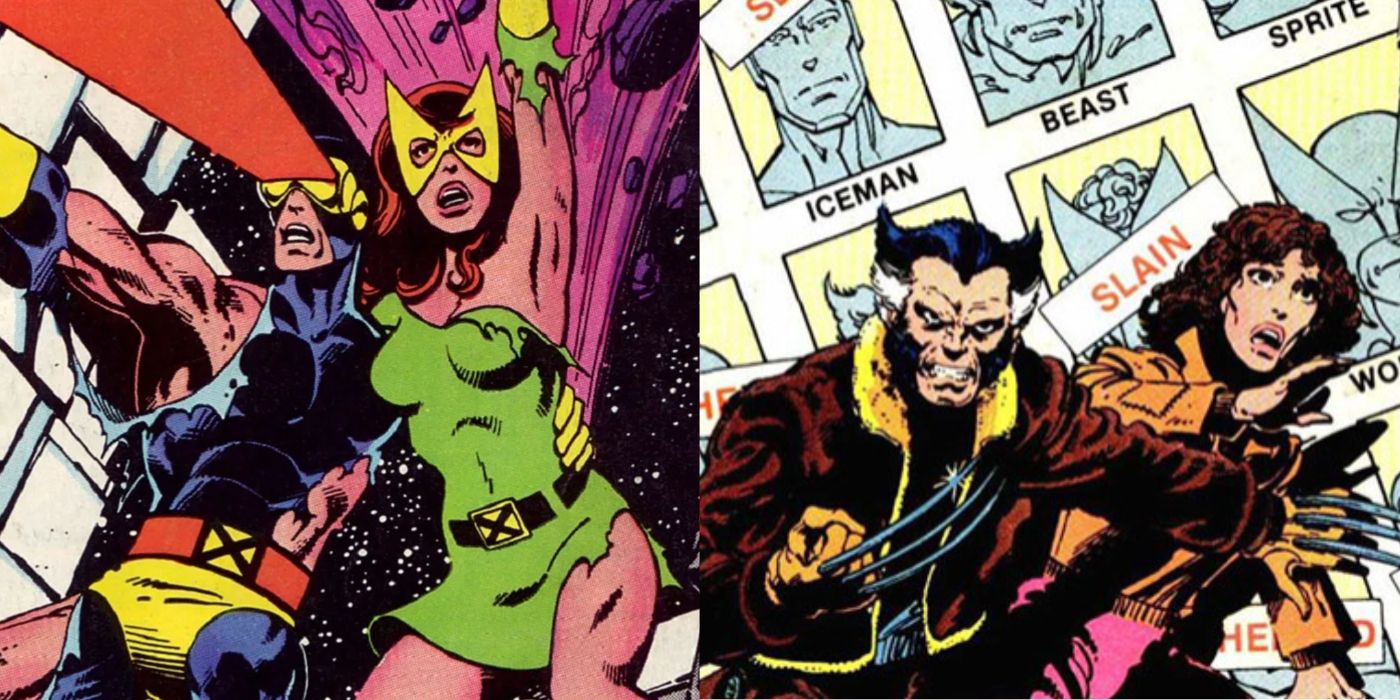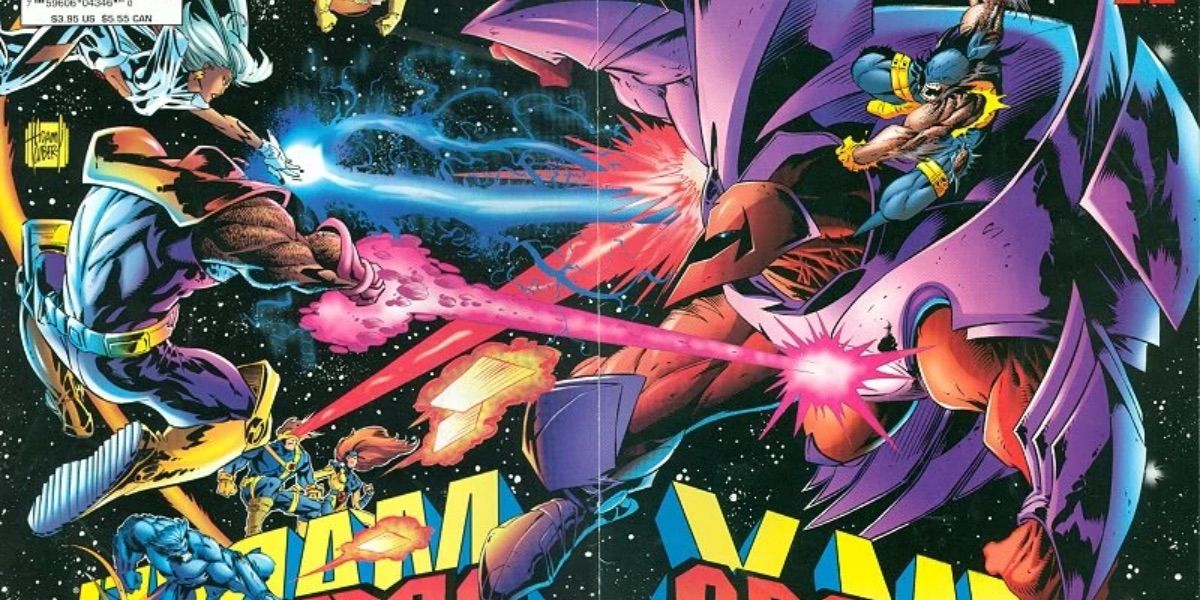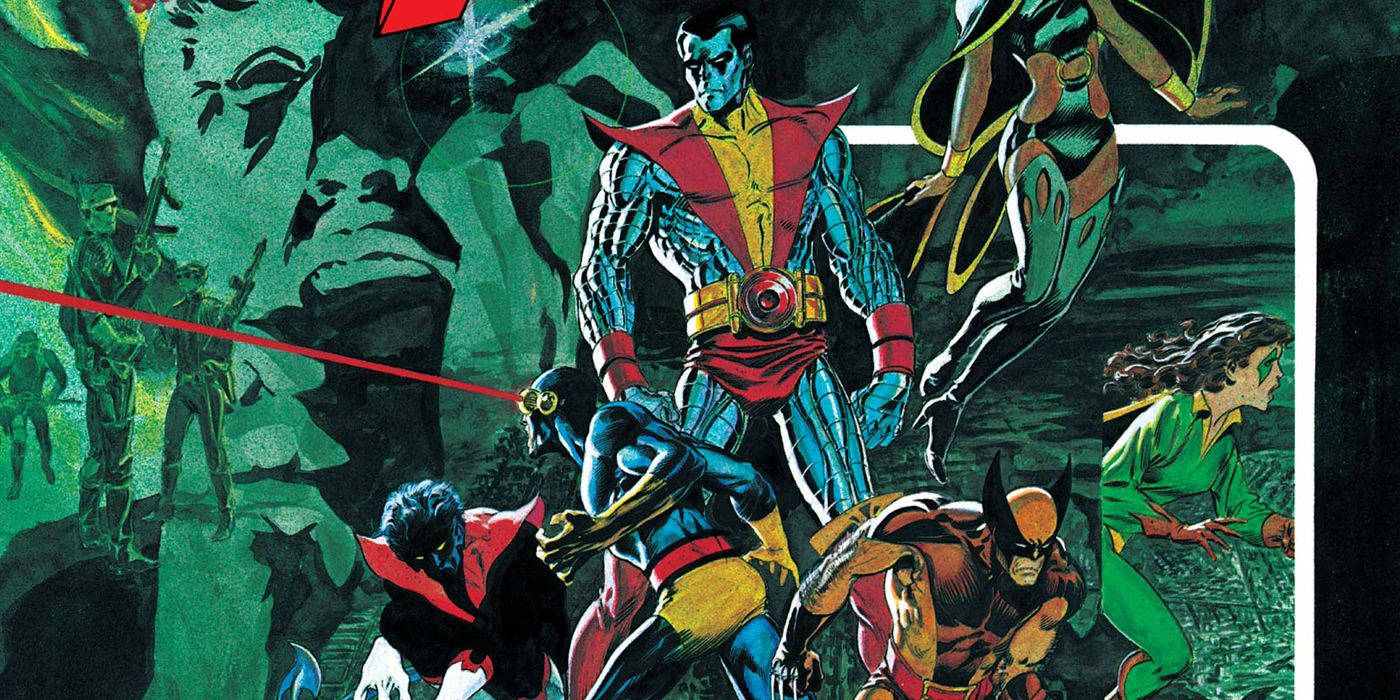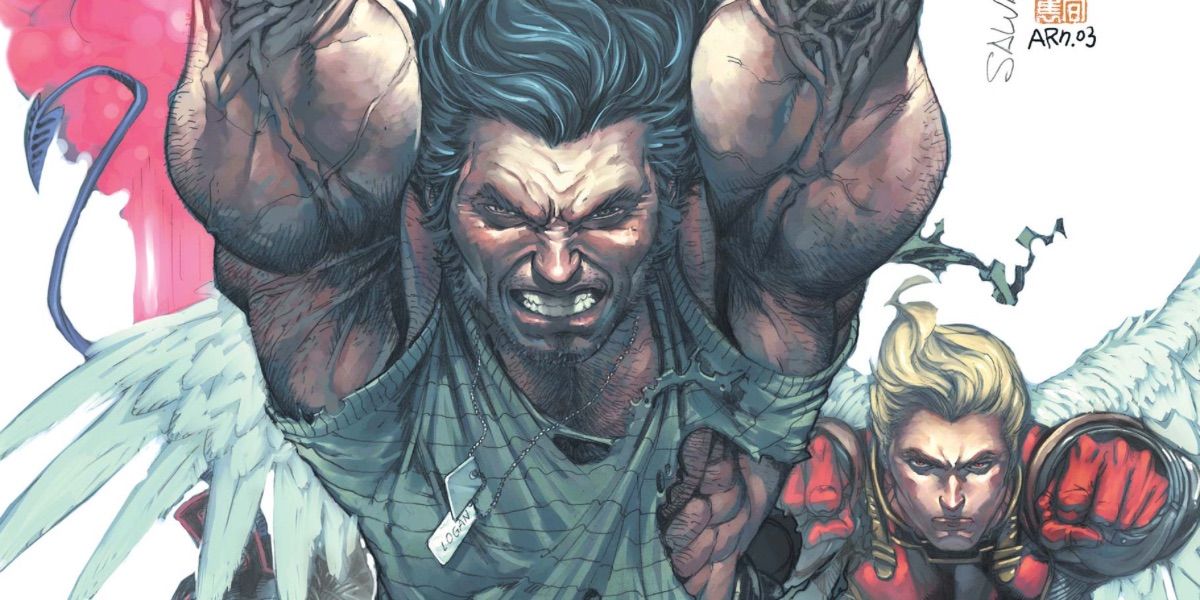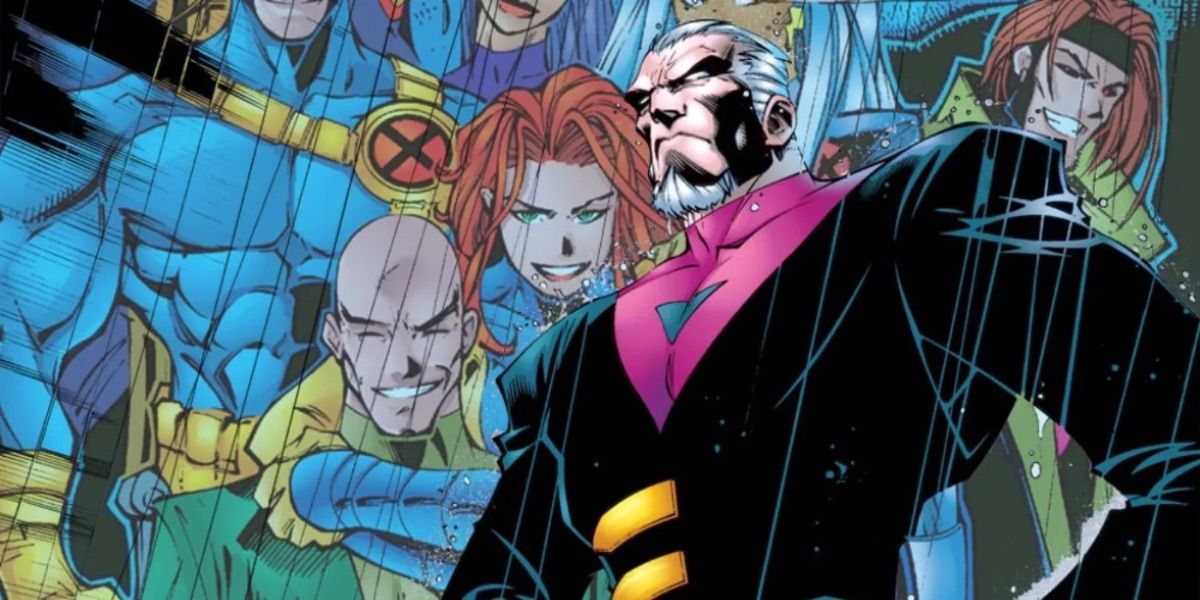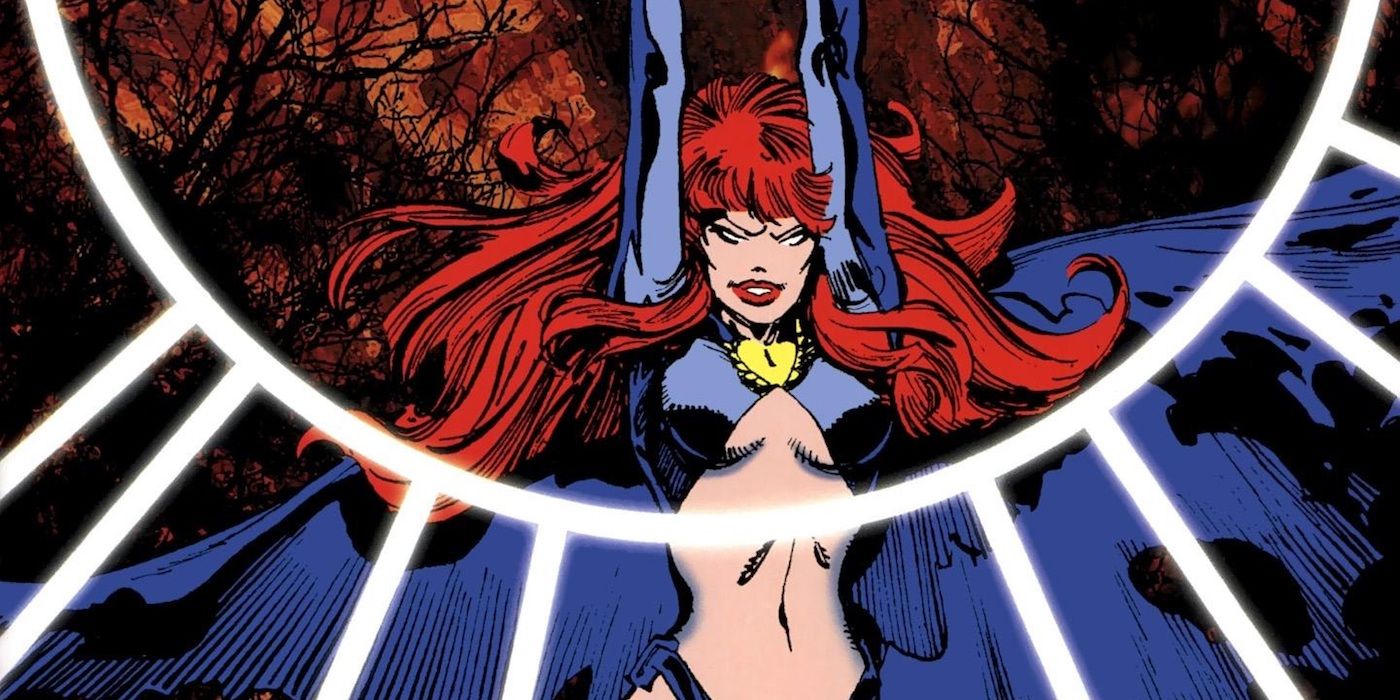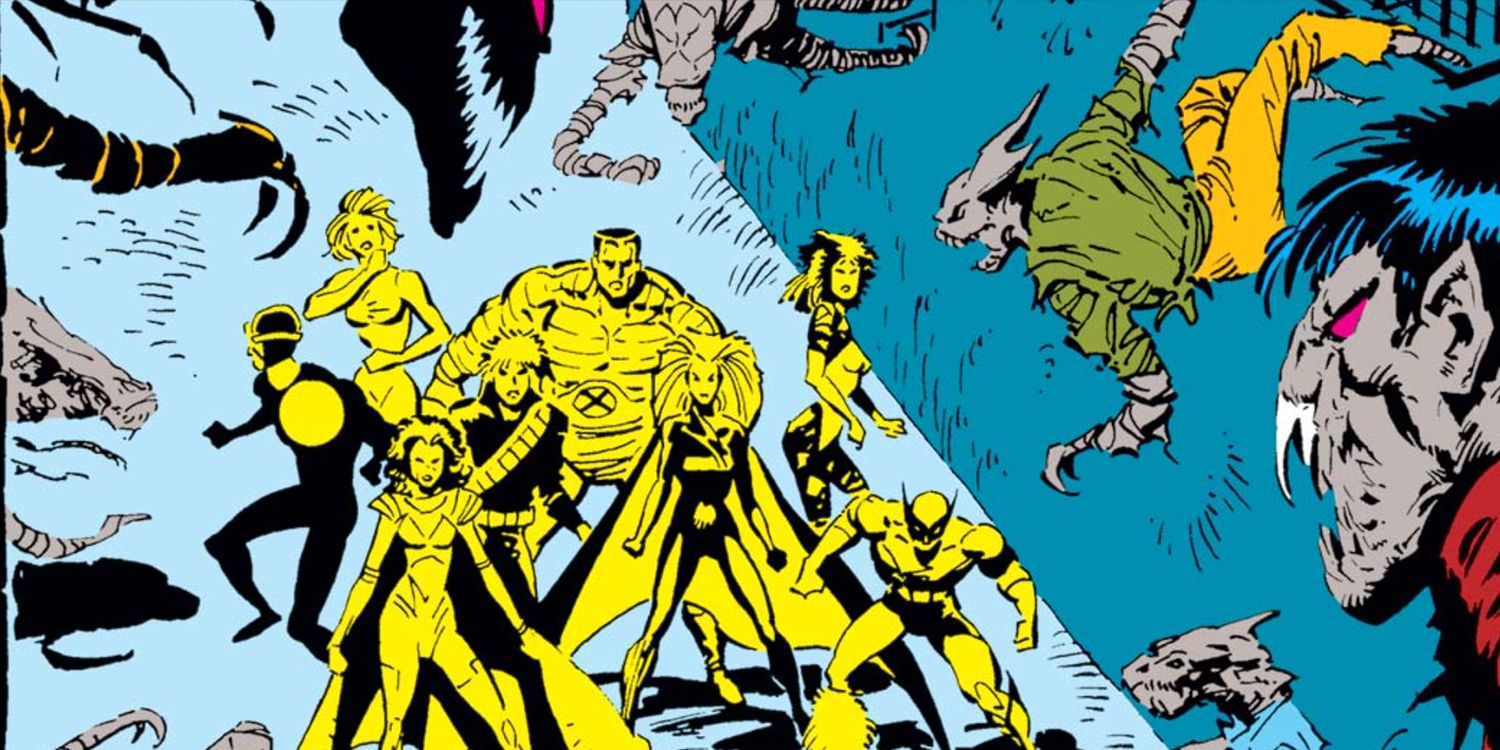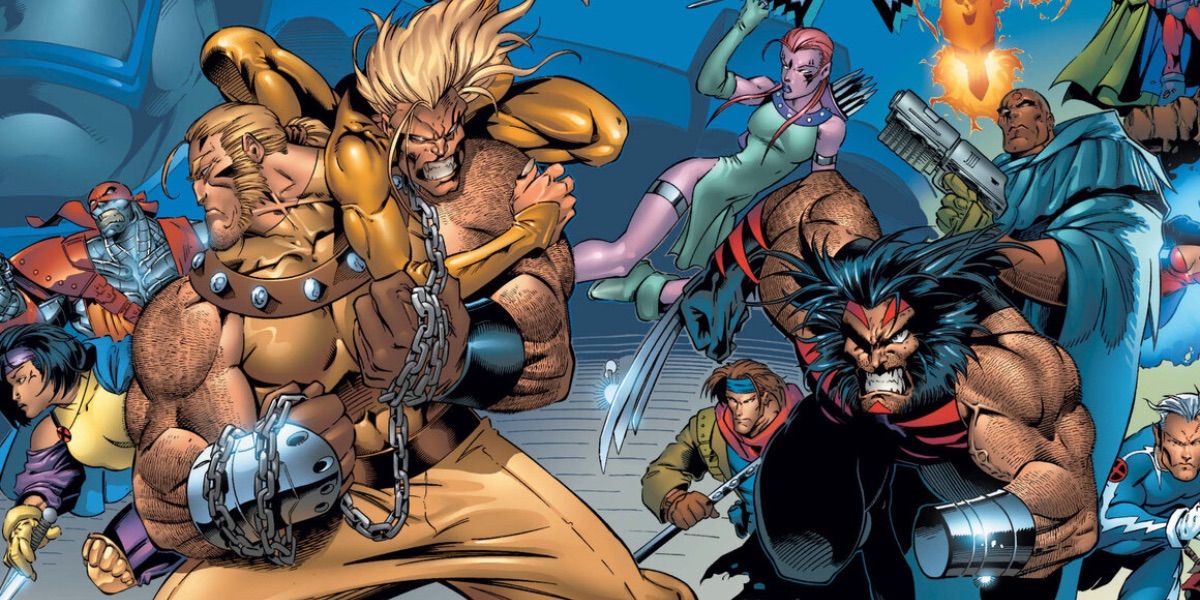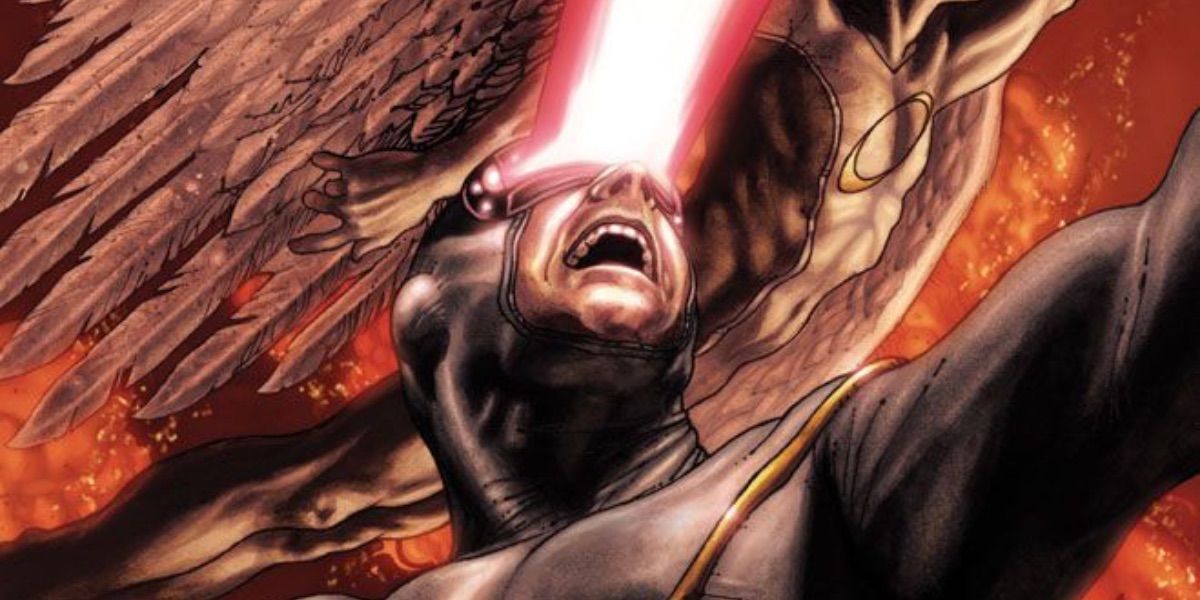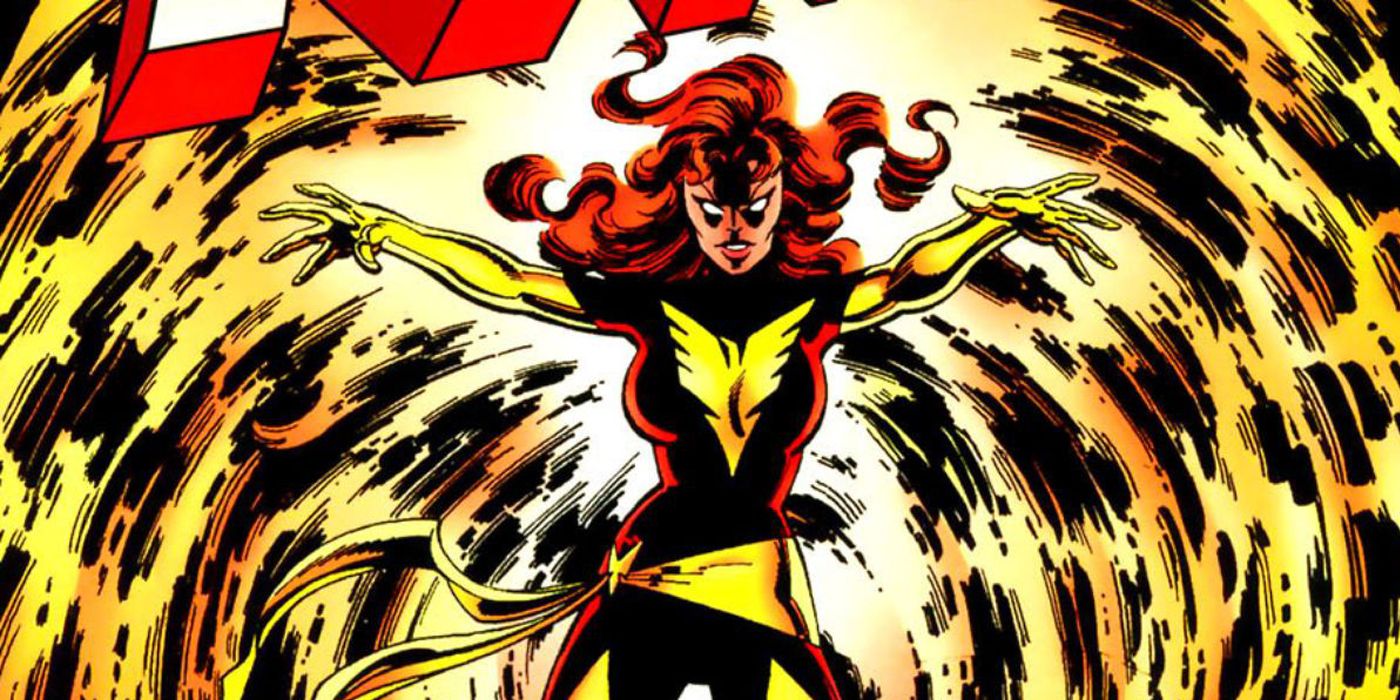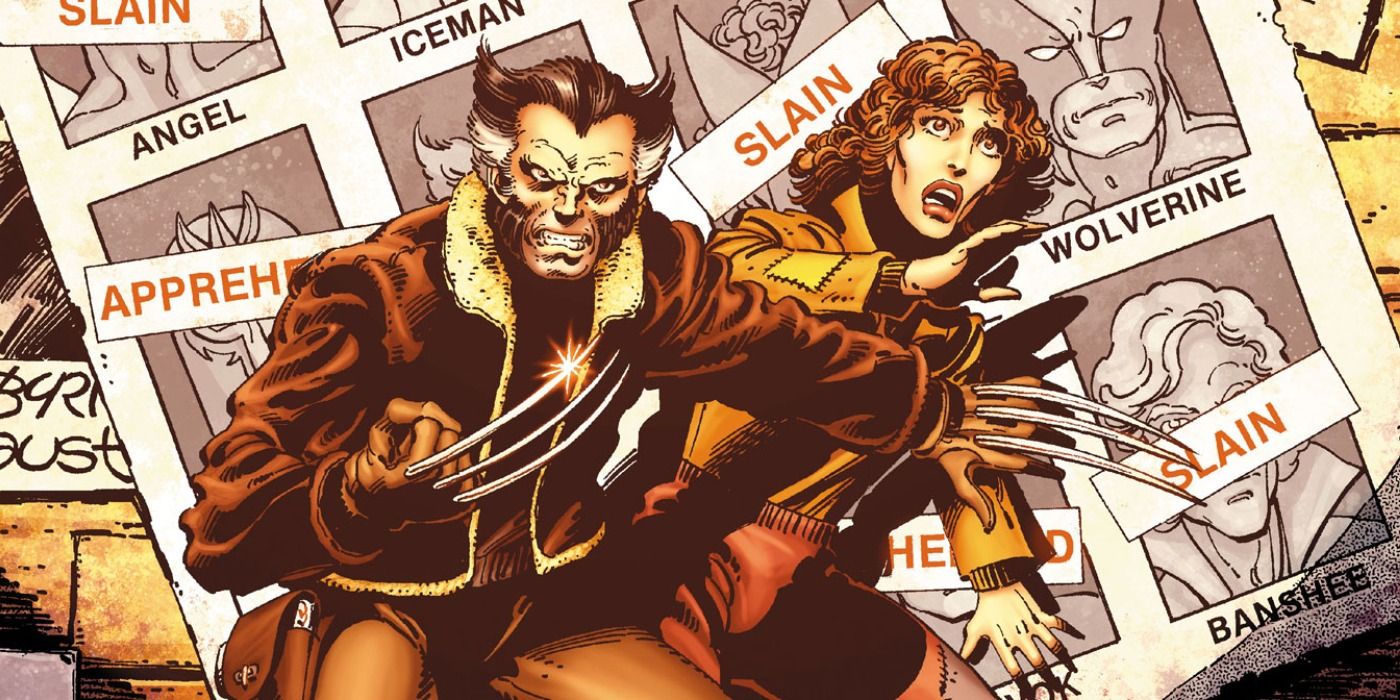With the appearance of Professor X in Doctor Strange in the Multiverse of Madness, it seems as if the classic mutant team is getting closer to appearing in the MCU in earnest. The X-Men comics have always been the shining example of Marvel's comic legacy, and they have delivered a slew of amazing storylines over their six decades in print.
From groundbreaking arcs like "The Dark Phoenix Saga" to understated storylines like God Loves, Man Kills, plenty of the X-Men's best comic outings could be considered essential reading. Though the team is known for its gripping arcs, users on Reddit took to the site to call out the comic books storylines that they couldn't put down.
Onslaught (1996)
The X-Men comics of the '90s have gotten guff for being a bit verbose, but the crossover event Onslaught has since garnered a cult fanbase. Explaining their entry into the fandom, user TheSteelBlade said "Onslaught brought me to the X-Men in the mid 90s having only read a few issues."
Cutting a wide swath across the Marvel Universe, the X-Men and their struggle with Magneto's evil alter-ego wasn't only contained within X-Men titles. Pushing the envelope as was the style in the '90s, the series is worth reading for the action sequences alone, but it is really worth a look because it helps to solidify the importance of the mutants in the Marvel Universe.
X-Men: God Loves, Man Kills (1982)
Conceived as a standalone graphic novel, the seminal Chris Claremont book X-Men: God Loves, Man Kills was a dark first glimpse at where the comic book industry was headed in the '80s. Letting the title speak for itself when referencing the best X-Men storylines, user MiserableSnow stated simply "X-Men: God Loves, Man Kills."
Ranked highly among Claremont's best comic books, the story was the inspiration for the hit film X2, and further explored the idea of mutant persecution. Magneto is given especially excellent treatment in the arc, and it was one of his first steps towards becoming a sympathetic villain who the audience could sometimes relate to.
She Lies With Angels (2004)
While most of the famous arcs to feature the mutants came in the '80s and '90s, the understated story "She Lies With Angels" was a surprisingly simple tale that hearkened back to the good old days of the book. Heaping praise upon the hidden gem, user Gunnerss said "She Lies With Angels...is probably one of my all time favorite stories!"
Envisioned as a send-up to the classic play Romeo and Juliet, the arc was a gripping love story that tackled themes of anti-mutant racism, set within the U.S.'s coal country. Like a love letter to some of the best X-Men issues of the '80s, "She Lies With Angels" narrowed its scope and allowed the characters to shine, without a massive and consequential storyline.
Operation: Zero Tolerance (1997)
While many of the X-Men's events involve the rest of the Marvel Universe, some of their absolute best are self-contained within the X-Men books alone. User bugcatcher_billy shouted out one such example when they said "Operation 0 Tolerance was pretty good if you are an Ice-Man fan."
After the over-the-top nature of Onslaught, "Operation: Zero Tolerance" was an understated arc that picked up right where the former left off. Returning to the series' roots, the story followed the X-Men as they fought against a secret government program that tried to frame them. Proving that the tried and true still works best, "Zero Tolerance" is hardly a rehash, but a wholly original exploration of established themes within the franchise.
Inferno (1988-1989)
Building on ideas that had been brewing throughout the decade, "Inferno" was the culmination of years of storyline and was one of Cyclops' best comic book arcs. Not mincing words, a deleted user vouched for the arc by saying "Inferno. All time fave. Cyclops was so mindf***ed. I'd wager to say he was never the same since."
In the midst of a demonic invasion of earth, Cyclops is once again the subject of psychological torture when Madelyne Pryor is revealed to be a clone of Jean Grey. Though the arc is convoluted and requires a fair amount of knowledge to understand, its character development allowed Claremont to flex his muscles. Aside from the global consequences, it is Cyclops' mental state that takes the biggest blow, and it was an ambitious thing to do with a character in the '80s.
The Brood Saga (1982)
Giving Marvel true believers a shocking dose of horror in the early-'80s, the infamous "Brood Saga" is still fondly remembered as a highlight of Claremont's epic run on the book. Firmly placing the "Saga" in its rightful spot in history, user benergiser wrote "The brood story is so essential...couldn't believe it took me so long to get to it."
Infected with an alien being that feeds off its host, the whole X-Men squad relies on the roguish Wolverine to fight off the infection and save the day. Not only was it a treat to see Wolverine take charge, but the terrifying visuals of the arc were pretty far out for early-'80s Marvel. Establishing a foe that has come back again and again, "The Brood Saga" is Marvel horror done right.
Age Of Apocalypse (1995-1996)
Once again having universal implications, the "Age of Apocalypse" storyline was one of the most consequential moments in X-Men history. Getting personal with their pick, user myowngalactus wrote "Age of Apocalypse is by far my favorite."
After a time-traveling mutant kills Professor X and changes the timeline, Apocalypse lays waste to the earth and the X-Men must put the timeline back in order to save the universe. "Age of Apocalypse" was a big deal in the '90s, and Marvel had rarely taken such a big risk as to totally wipe out the timeline. Though it was largely butchered for the movie of the same name, the original comic is still one of the X-Men series' finest outings.
Messiah Complex (2007-2008)
The first in a massive trilogy of arcs that spanned several years, "Messiah Complex" set the franchise in an entirely different direction. Agreeing with another user's assessment, user luckydevil713 said "Second the Messiah trilogy. The whole thing is what got me into comics in general."
Following the "House of M" storyline which garnered some unpopular opinions about the comics, "Messiah Complex" came along to get the X-Men books out of the doldrums with an epic tale. The story is essentially a race against time as the mutant messiah is born which sparks several teams to race to find the child. Paid off over a trilogy of arcs, "Messiah Complex" was not only epic, but it set in motion events that are still being felt in the comics today.
The Dark Phoenix Saga (1980)
Marvel Comics had featured a fair amount of death by 1980, but "The Dark Phoenix Saga" is still one of the publisher's most shocking moments. Playing off of the historical significance of the arc, a deleted user said "When I was younger the Dark Phoenix saga was it for me."
The saga proved that Chris Claremont was willing to make tough choices regarding the characters, and was unwilling to maintain the status quo. Chronicling the rise and eventual fall of Jean Grey in her Phoenix persona, Claremont's brilliant writing was not only a dagger in readers' hearts, but he relished in twisting it as well.
Days Of Future Past (1981)
Introducing the X-Men to Marvel's convoluted web of alternate earths, "Days of Future Past" was proof positive that the Claremont/Byrne era was in full effect by 1981. User dr_kingshultz admitted to being a novice but nevertheless said "Just started reading and by far days of futures past is my favorite."
Young Kitty Pryde takes center stage as she must work with her fellow X-Men to prevent a future in which all mutants are either dead or incarcerated. Though it was only a two-issue arc, "Days of Future Past" was concise and captivating, and was the first glimpse of the kind of multiversal storytelling that would come in the ensuing decades.

